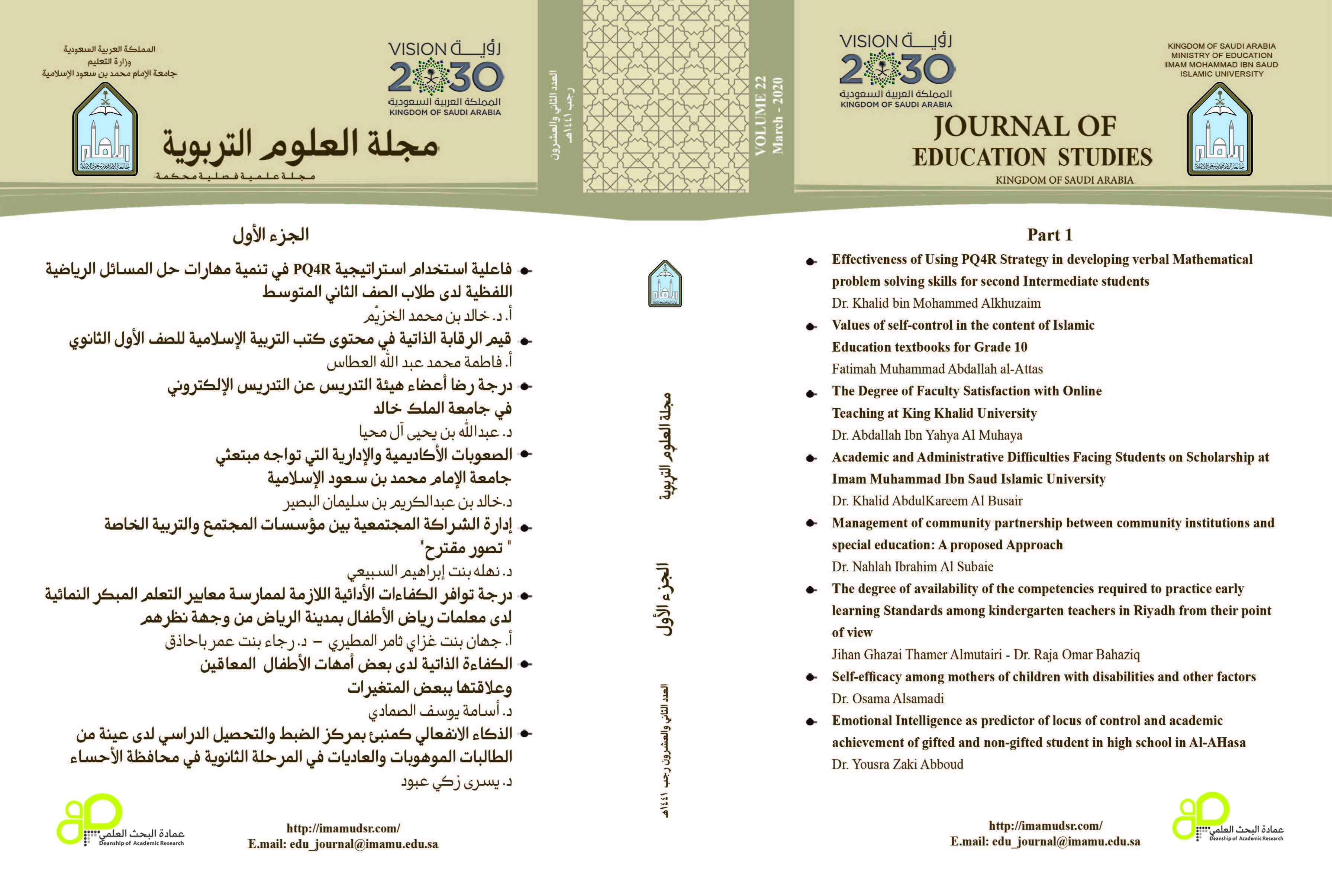The degree of availability of the competencies required to practice early learning Standards among kindergarten teachers in Riyadh from their point of view
Keywords:
Standards – Early Developmental learning – Cognitive-Social development – Nationalism in social studiesAbstract
This study aims to identifying the competencies required for practicing the Early Developmental Learning among teachers in preschools education in relation to two criteria: Social-Cognitive Development and Nationalism in Social Studies. In order to achieve the purposes of the current study, the researcher designed a questionnaire, following the standards of the Early Ongoing Learning statement in building the questionnaire, it consisted of (47) phrases, which were applied to a random sample of (291) teachers in preschool education in state kindergartens in the city of Riyadh. The results of the study showed that the performance in practicing the Early Developmental Learning processes is scored up to the criteria of Social-Cognitive development with a high median score of (4.19) and SD of (0.46). On the other hand, the competencies required for practicing the criteria of Nationalism in Social studies, was moderately achieved, with a median of (3.95) and SD of (0.64). It was found that there were no reliable statistical differences, among the study’s sample in the competencies required for practicing the dimension of Cognitive-Social development criteria related to the following dimensions: Concept of the self, expression of emotions, relationship with peers, which can be attributed to the variables of qualification, specialization and years of experience. However, there were statistical differences (0.5) among the sample of the study of the teachers related to the dimension of (Self-control). These differences can be related to the differences in specialization, on the part of preschool teachers. Also there were other statistical differences (0.1) in the dimension of relationship with elders. This goes back to the variable of academic qualification, inclining to teachers holding diplomas or less degree. There were no statistical differences among the members of the sample in the competencies required for practicing the standards of Nationalism in Social Studies in the dimensions of identity, sense of belonging to the community, geography, natural resources, economic systems and reciprocity, which could be attributed to the variables of qualifications, specifications and years of experiences. On the other hand, there were significant statistic differences (0.1) in the dimension of (History and culture) owing to years of experiences, inclining to the more experienced teachers who worked for 10 years or more.




